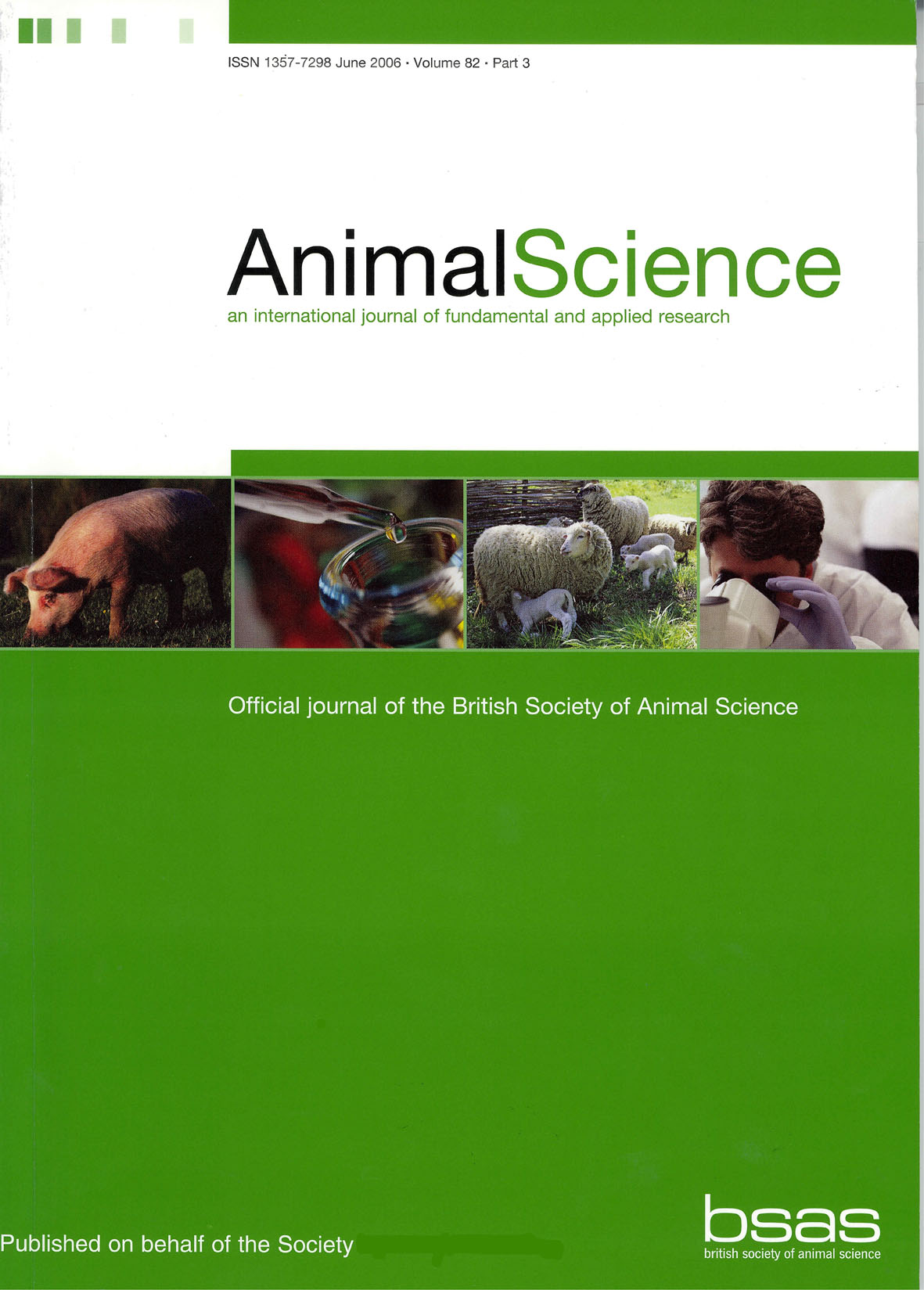Article contents
Acute and long term effects of chronic intermittent noise stress on hypothalamic-pituitary-adrenocortical and sympatho-adrenomedullary axis in pigs
Published online by Cambridge University Press: 18 August 2016
Abstract
Noise is a potential environmental stressor and has also been identified as an aversive stimulus during animal housing. The impact of a 4-week chronic intermittent noise exposure on plasma adrenaline, noradrenaline, ACTH, cortisol and behaviour was studied in 24 male castrated German Landrace pigs. Three treatment groups were formed: N1 animals were subjected to a daily stimulation with broad-band noise (2 h, 90 dB(Lin)), N2 animals were subjected to the same stimulus three times a week and control animals were equally handled but experienced no noise exposure. Blood was serially sampled once a week via jugular vein catheters before, during and after a noise session. Behavioural observations of focal animals were performed by video technique. The first noise exposure of the animals caused no significant changes of stress hormone levels compared with the controls despite indices for more locomotion and less lying at the beginning of the noise stimulation, indicating that this noise stimulus is a rather mild stressor compared with other stimuli. The chronic intermittent noise stimulation, however, caused an increase of plasma ACTH and cortisol concentrations in the N1 animals after 4 days. The cortisol response of the N2 animals was unchanged compared to the controls at day 4, increased thereafter and at day 11 and 18 these animals tended to have higher cortisol levels compared with the controls. The noradrenaline/adrenaline ratio was significantly increased in N1 animals after 11 days and thereafter, whereas this ratio was unchanged in N2 animals until day 18, but also increased at day 25. In tendency, chronic intermittent noise exposure tended to reduce social behaviour and increase lying behaviour in both noise groups. In addition, the growth performance of pigs was negatively affected by the daily noise stimulation. In a second experiment with 16 male castrated German Landrace pigs, the impact of the daily intermittent noise exposure (N1) on the endocrine response to an acute stressor (restraint) and on the adrenocortical sensitivity to an ACTH challenge was studied. The time course of cortisol levels during the ACTH test indicated alterations in the time dynamics of the adrenocortical response with a more rapid response in the N1 animals. The results show that chronic intermittent noise exposure causes time-dependent alterations of the adrenocortical and sympathetic neural systems and may lead to behavioural suppression and growth retardation in pigs. Thus, repeated exposure of animals to noise levels over 90 dB should be avoided in pig husbandry to sustain productivity and animal welfare.
- Type
- Non-ruminant nutrition, behaviour and production
- Information
- Copyright
- Copyright © British Society of Animal Science 2004
References
- 38
- Cited by


